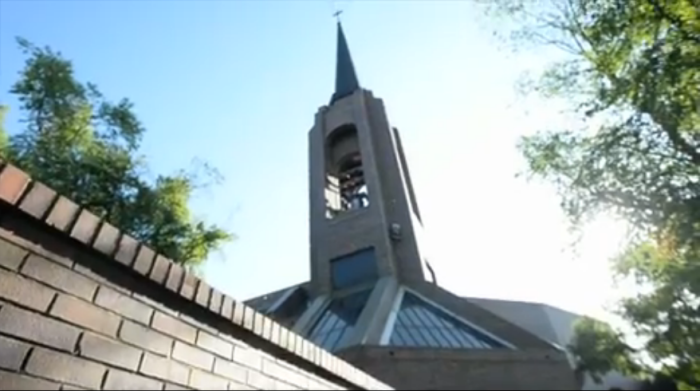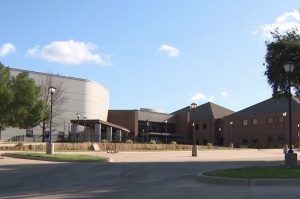Baptist Church Founded by First SBC President Allows Ordination of Gay and Transgender Ministers

The South Carolina church that was founded by the Southern Baptist Convention's first president has adopted a new non-discrimination policy that will allow for the congregation to not only marry same-sex couples but also ordain openly gay, lesbian and transgender ministers.
Dr. Jim Dant, senior minister of the 184-year-old First Baptist Church in Greenville, South Carolina, explained in a recent interview with Greenville Online that his church, which is no longer Southern Baptist, voted earlier this year to take up a new policy that does not allow the church to discriminate in any facet of its ministry on the basis of sexual orientation or gender identity.
The vote came after members of First Baptist went through a six-month discernment process on how the church should handle the LGBT community.
"The decision we made was completely non-discriminatory. We do not discriminate on the basis of sexual orientation or gender identity," Dant said. "If the person comes into the church as a follower of Christ on their journey, they are welcome to experience and express that journey in any way that any other person is able to express and live out the rituals of their faith."
Dant said that members of the church, which was founded in 1831 by SBC's first president William Bullein Johnson and broke apart from SBC in 1999, have had informal discussions "for years" on what the church's policy should be when it comes to sexual orientation and gender identity. It wasn't until last November that the congregation began having formal talks about the issue.
Over the course of four Sundays last November, a group of 200 First Baptist members gathered in groups of eight to discuss their views on the issue. Dant stated that although not all members could agree on the affirmation of homosexuality or gender identity, a general consensus was reached that even though the congregants might have "diverse opinions," the one thing they had in common was that they were there to worship Christ.
"This church's journey is just like a lot of churches' journeys," Dant asserted. "You think you are about to make a decision about homosexuality or how the church is going to deal with the LGBT community to be able to live with the LGBT community. It really ended up not being a decision about homosexuality, but being a larger decision about what it means to be a church."
"We are a diverse people," Dant continued. "We sit on pews Sunday morning with people that have diverse opinions, and we are not united by our agreement on any one issue, we are united in our desires to be followers of Christ in a particular community."
In May, members adopted a consensus statement.
"In all facets of the life and ministry of our church, including but not limited to membership, baptism, ordination, marriage, teaching and committee/organizational leadership, First Baptist Greenville will not discriminate based on sexual orientation or gender identity," the statement reads.
During a Sunday service, members were asked to stand to signify that they supported the statement. As the majority of the congregation stood, the other members were asked to stand to signify that they would continue worshipping at the church despite the lack of consensus. Greenville Online reported that in the end, the entire church was standing.
After the church broke away from the SBC, which holds that same-sex marriages will "weaken the institution of a natural family," it soon affiliated with the Cooperative Baptist Fellowship.
CBF consists of over 2,000 Baptist churches, most of which joined when they broke apart from SBC in the early 1990s. However, First Baptist's consensus statement on homosexuality and gender identity conflicts with the CBF's statement on the issue.
According to the coalition's statement on "organizational values," the CBF honors the traditional definition of marriage and does not allocate any funding to churches that condone same-sex marriage or allow practicing homosexuals to take official roles within the church.
"As Baptist Christians, we believe that the foundation of a Christian sexual ethic is faithfulness in marriage between a man and a woman and celibacy in singleness. We also believe in the love and grace of God for all people, both for those who live by this understanding of the biblical standard and those who do not," the CBF statement reads. "We treasure the freedom of individual conscience and the autonomy of the local church, and we also believe that congregational leaders should be persons of moral integrity whose lives exemplify the highest standards of Christian conduct and character.
"Because of this organizational value, the Cooperative Baptist Fellowship does not allow for the expenditure of funds for organizations or causes that condone, advocate or affirm homosexual practice," the statement continues. "Neither does this CBF organizational value allow for the purposeful hiring of a staff person or the sending of a missionary who is a practicing homosexual."
Although the church's consensus opens the doors for gay, lesbian and transgender ministers, Dant said the consensus does not mean the church has decided whether homosexuality is biblically moral, and added that each member is entitled to their opinions.
"In some ways, it's going to open up a space for Evangelical gay people to have a place again," Dant argued. "There will be a voice of biblical interpretation in the Evangelical world that says the way this has been interpreted by the average preacher on AM radio every Sunday is not the only way that Evangelicals read biblical literature."
Leading evangelist Franklin Graham, president of the Billy Graham Evangelistic Association, responded to the church's decision in a Facebook post saying that the church has embraced sin.
"This is disappointing and discouraging," Graham wrote. "According to God's Word, what they are embracing is sin. The Bible says, 'Woe to those who call evil good and good evil, who put darkness for light and light for darkness…' (Isaiah 5:20)."





























